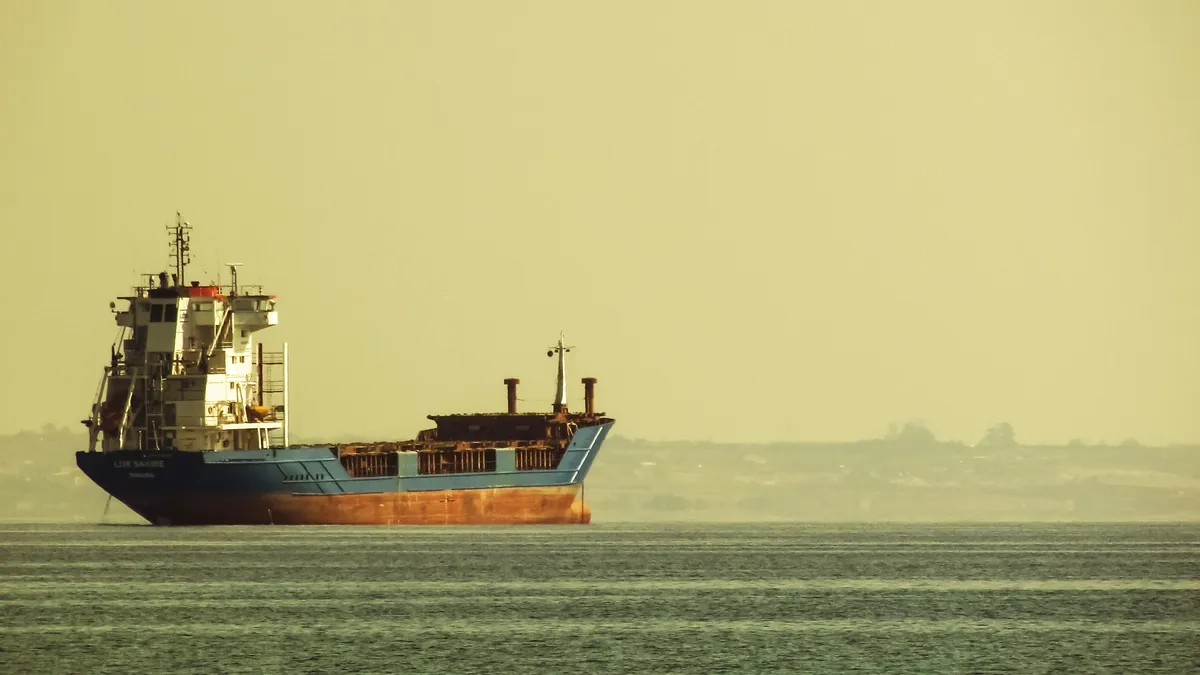Dive Brief:
- Swiss freight forwarder Kuehne+Nagel will begin sharing emissions data for ocean shipments on customers' invoices, DC Velocity reported Wednesday.
- The company is relying on data gleaned from its own carbon calculator to tally CO2, SOx and NOx emission levels created by door-to-door delivery of containers.
- K+N seeks to raise awareness of the environmental impact of logistics throughout the supply chain. The data to calculate emissions levels is provided by the Clean Cargo Working Group, which includes shipping lines representing 87% of world container shipments.
Dive Insight:
The supply chain is a relationship business, which means initiatives by one partner can influence others significantly. Apple suppliers, for example, are lining up behind the company's 100% renewable energy goal. K+N's move to include freight emissions in their invoice is an example in how a logistics provider — which typically carries less influence in the chain compared to a buyer or supplier — can help push sustainability initiatives.
Simply showing clients the environmental impact of their shipments, while seemingly unnecessary, is a step in being able to decrease emissions. Last year, BSR published four steps to ensure a valuable sustainability policy; the first is awareness. Once a client knows and can track emissions, it can also compare across different carriers or routes, and potentially make sustainability-driven decisions with the additional data.
In fact, middlemen like logistics providers should not be underestimated in the drive toward sustainability. With over 1,300 locations in more than 100 countries, the company's client base is expansive. We often talk about top-down or grassroots approaches, but sometimes, as K+N shows, middle-out initiatives can be fruitful, too.













